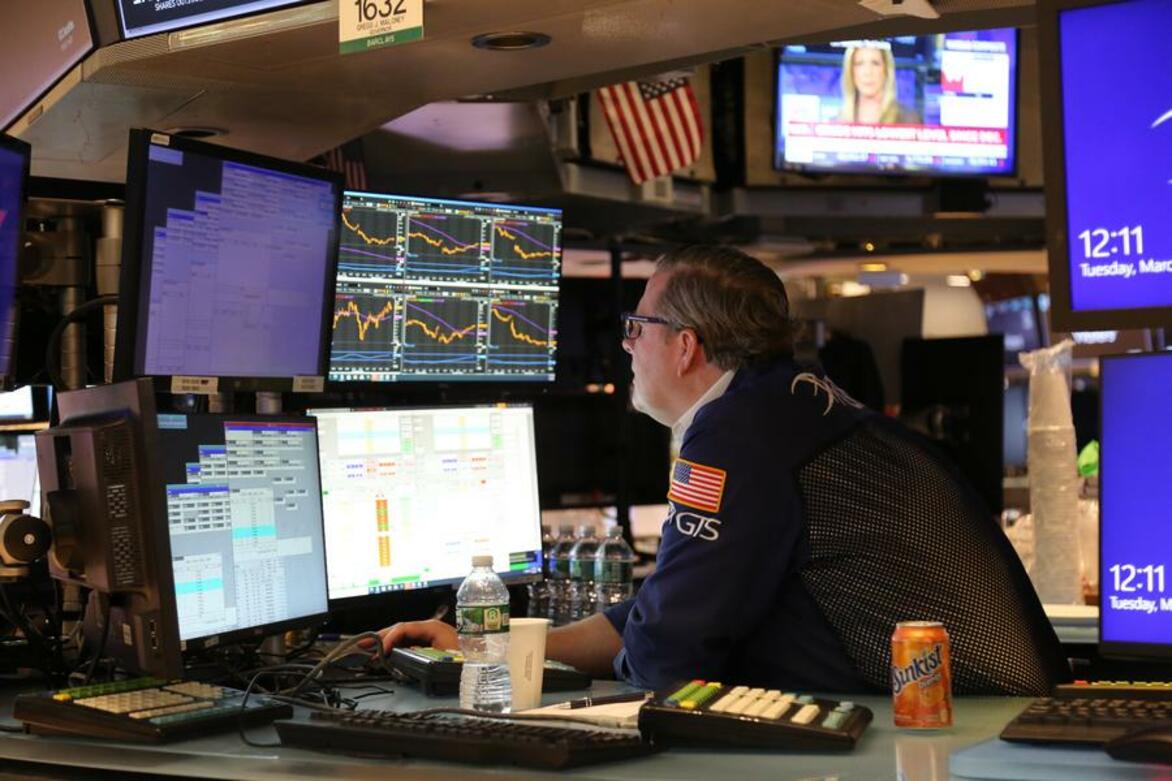Roundup: Trump's reciprocal tariffs spark global selloff amid recession fears
Xinhua
03 Apr 2025

A trader works on the floor of the New York Stock Exchange in New York, the United States, on March 4, 2025. (Xinhua/Liu Yanan)While investors had been bracing for these tariffs over the past week, Washington's latest punitive measures turned out to be more aggressive than expected.BEIJING, April 3 (Xinhua) -- Asian stocks and major U.S. and European stock index futures tumbled Thursday morning following U.S. President Donald Trump's announcement of reciprocal global tariffs, fueling mounting fears of a trade war that could push the world into recession.Speaking in the White House Rose Garden, Trump said Wednesday that he would impose a 10 percent "minimum baseline tariff" on all imports and held up a chart showing higher duties on some of the country's biggest trading partners, including 20 percent on the European Union, 24 percent on Japan, 34 percent on China and 49 percent on Cambodia.The impact was felt across global markets as investors digested the news overnight.By 6:35 p.m. Eastern Time on Wednesday (2235 GMT), futures for the Dow Jones, S 500 and Nasdaq had fallen by 2.43 percent, 3.6 percent and 4.35 percent, respectively.Crude futures also fell over 2.5 percent, and cryptocurrency prices took a hit, with Bitcoin dropping below 83,000 U.S. dollars after the announcement of the U.S. tariffs.Meanwhile, gold hit a record high above 3,160 dollars an ounce as investors flocked to safe-haven assets.U.S. President Donald Trump shows an executive order on "reciprocal tariffs" at the Rose Garden of the White House in Washington, D.C., the United States, on April 2, 2025. (Xinhua/Hu Yousong)Japan's benchmark Nikkei 225 index tumbled as much as 4.6 percent shortly after opening to an eight-month low of 34,102.00, with analysts warning of further pressure as a stronger yen, driven by safe-haven demand, threatened to weigh on exports.The benchmark Korea Composite Stock Price Index started the session nearly 3 percent lower.While investors had been bracing for these tariffs over the past week, Washington's latest punitive measures turned out to be more aggressive than expected."The tariffs announced are at the extreme end of forecasts," Gary Clyde Hufbauer, a nonresident senior fellow at the Peterson Institute for International Economics, told Xinhua. "Hard to see the U.S. avoiding a recession. World growth will be down 1 percent or more," he said.Despite Trump's claim that higher tariffs would help bring in revenue for the government and revitalize U.S. manufacturing, economists have warned that such measures will push up prices for U.S. consumers and businesses, disrupt global trade and hurt the global economy."The move was a significant escalation of Mr. Trump's trade fight and is likely to ripple through the global economy, driving up prices for American consumers and manufacturers while inciting retaliation from other nations," The New York Times reported.
